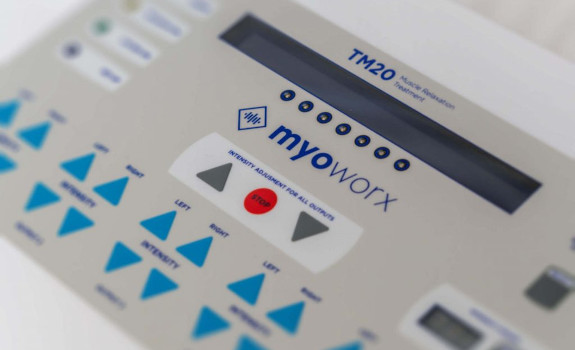Introduction
Navigating the aftermath of a concussion can be overwhelming. When you're faced with symptoms like headaches, dizziness, or cognitive challenges, it's crucial to seek professional help. A concussion clinic specializes in diagnosing and treating concussions, offering tailored therapy treatments that can facilitate recovery. But what exactly can you expect during your visit? In this comprehensive guide, we will delve into every aspect of your experience at a concussion clinic—everything from the initial assessment to the therapies that may help you regain your health.
What to Expect During Your Visit to a Concussion Clinic
When you arrive at a concussion clinic, the first thing you'll encounter is an environment designed for comfort and healing. Clinics often prioritize a calming atmosphere as many individuals struggling with concussion affordable sciatica therapy symptoms can feel anxious or overwhelmed.
Initial Registration Process
Upon entering the clinic, you'll be asked to fill out some paperwork. This usually includes:
- Personal information (name, age, contact details) Medical history Details of any previous concussions or head injuries Current medications and allergies
It's essential to provide accurate information so the medical team can assess your situation effectively.
The First Consultation: What Happens?
During your first consultation with a healthcare provider specializing in concussions, expect them to conduct a thorough evaluation. They'll ask specific questions about your concussion symptoms such as:
- When did the injury occur? What were you doing when it happened? Have your symptoms worsened or improved over time?
This dialogue helps establish a baseline for your treatment plan.
Physical Examination
After discussing your medical history and current symptoms, the clinician will perform a physical examination. This may include:
- Neurological tests assessing motor functions Balance assessments Eye tracking exercises
These evaluations help determine how well your brain is functioning post-injury.
Cognitive Assessment
In addition to physical tests, cognitive assessments are pivotal in understanding how concussions affect mental faculties. You might undergo an online concussion test, which evaluates memory, attention span, and processing speed through various tasks.
Why Cognitive Assessments Matter
Cognitive assessments are vital because they gauge not just the immediate effects of a concussion but also potential long-term impacts. concussion symptoms They serve as benchmarks for recovery.
Understanding Concussion Symptoms
Recognizing concussion symptoms is critical for timely intervention. Symptoms can vary widely but typically include:
Physical Symptoms
- Headaches Nausea or vomiting Fatigue Dizziness
Cognitive Symptoms
Concussions often impair cognitive functions leading to:
- Confusion Difficulty concentrating Memory problems
Emotional Symptoms
Psychological effects are also common:
- Irritability Anxiety Depression
Awareness of these symptoms will help both you and healthcare providers make informed decisions about treatment options.
Therapy Treatment Options Available
Once you've gone through an initial evaluation and assessment period at the concussion clinic, it's time to discuss therapy treatments tailored specifically for you.
Physical Therapy
Physical therapists work on strengthening neck muscles and improving balance—both critical after experiencing a concussion.
How Does It Help?
Physical therapy aims not only at alleviating symptoms but also at preventing recurrence by equipping patients with coping strategies.

Cognitive Behavioral Therapy (CBT)
Many clinics offer CBT as part of their treatment repertoire. This form of therapy helps address emotional disturbances stemming from concussions by changing negative thought patterns.
Benefits of CBT:
Reduces anxiety. Improves coping mechanisms. Enhances overall quality of life post-concussion.Vestibular Rehabilitation Therapy (VRT)
If you're experiencing balance issues or dizziness post-concussion, VRT may be recommended. This specialized therapy focuses on improving balance and reducing vertigo through targeted exercises.
Follow-Up Visits: Continuing Care
Your journey doesn’t end after one visit; follow-up appointments are crucial in monitoring progress and adjusting treatment plans accordingly.
What Happens During Follow-Ups?
Re-assessment of symptoms based on previous visits. Adjustments in therapy treatments if necessary. Additional cognitive testing if warranted.Being proactive during follow-ups enables clinicians to fine-tune approaches based on how well you're responding to treatments.
FAQs About Visiting a Concussion Clinic
1. How long does an appointment last?
Most appointments last between 60 to 90 minutes depending on individual needs and the complexity of cases.
2. Will I need imaging tests like MRIs or CT scans?
Imaging tests are not routine but may be ordered based on clinical judgment if there are concerns about more severe underlying issues.
3. Can I drive after my appointment?
Driving post-consultation generally depends on individual symptom severity; it’s best discussed with your healthcare provider during your visit.
4. Are there any side effects from therapy treatments?
While most therapies have minimal side effects, some patients might experience temporary discomfort that should subside quickly; always report any persistent issues back to your clinician.
5. How long does it take to recover from a concussion?
Recovery times vary significantly but most individuals start feeling better within weeks; however, some may experience prolonged symptoms that require ongoing care and support.
6. Can I resume sports or physical activities immediately after treatment?
Returning to sports should only happen once cleared by your healthcare provider following an appropriate recovery period; premature return increases risks for further injury.
Conclusion
Visiting a concussion clinic is an important step towards recovery after sustaining head trauma. From initial evaluations through personalized therapy treatments aimed at alleviating symptoms, clinics offer structured support designed specifically for those affected by concussions. Understanding what to expect during this journey will empower you not just physically but mentally as well—you’re taking control of your health by seeking help! Remember that everyone's path differs; what works for one person may not work for another—but being proactive about care makes all the difference in achieving optimal results!
Whether it's through online resources or face-to-face consultations with specialists who understand concussion symptoms deeply—you're not alone in this journey toward healing!